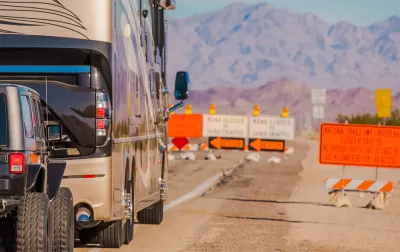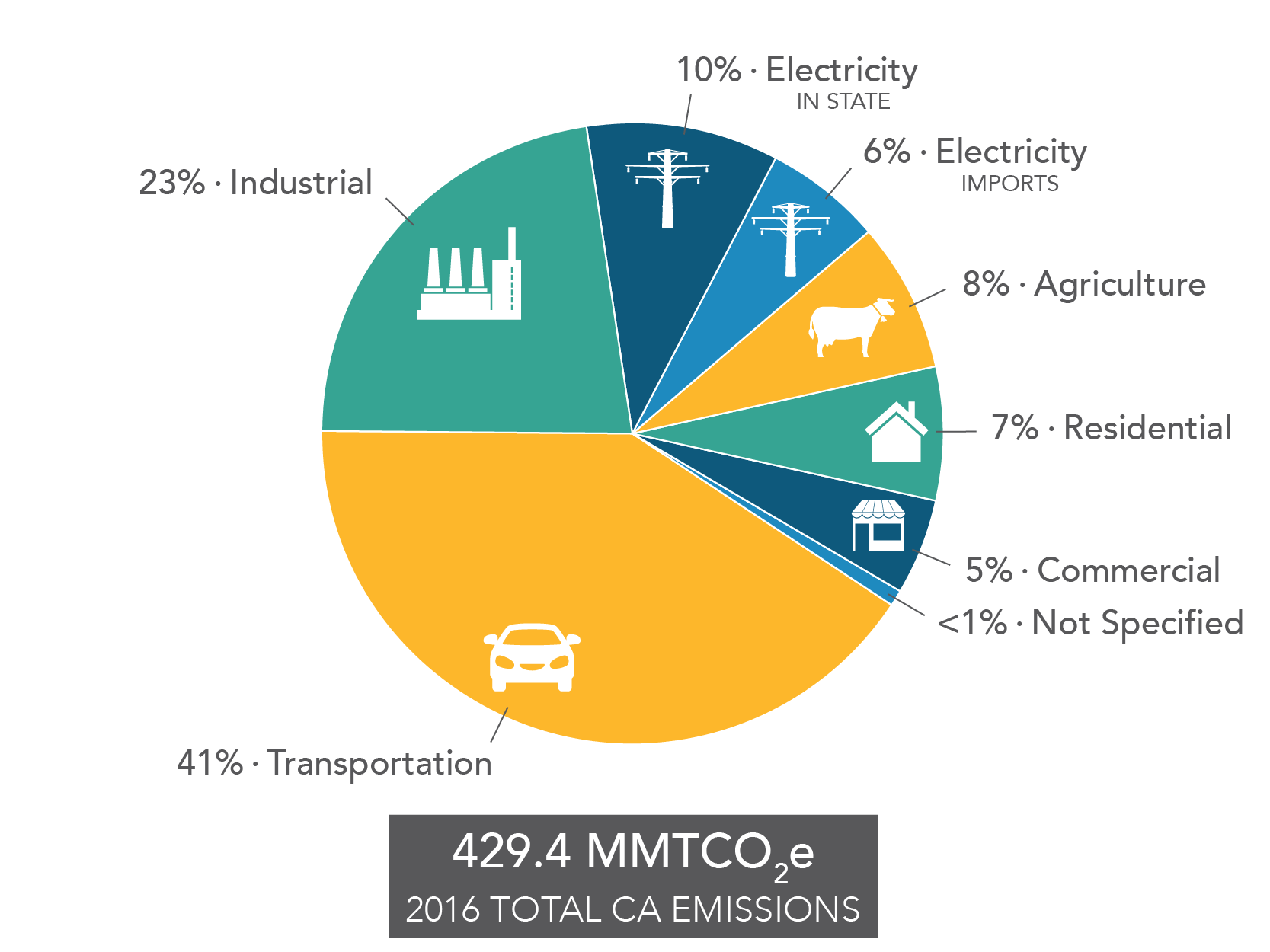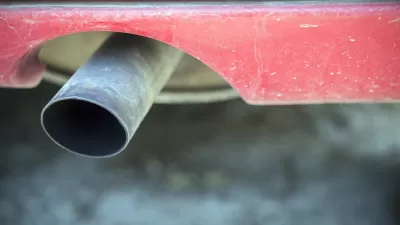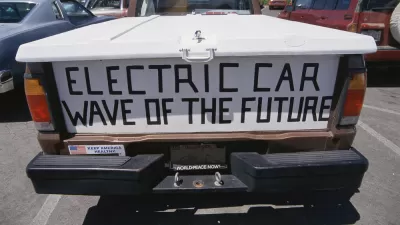Assemblymembers Phil Ting and Ash Kalra have reintroduced the Clean Cars 2040 Act with the goal of banning the sale of passenger vehicles powered by internal combustion engines by 2040, with the California Air Resources Board playing a lead role.

Assemblymember Phil Ting (D-San Francisco), arguably the legislature's most fervent advocate for electric vehicles, and Assemblymember Ash Kalra (D-San Jose), reintroduced the Clean Cars 2040 Act as Assembly Bill 40 on Dec. 3.
AB 40 pursues the same ends as this year's Assembly Bill 1745, banning the sales of fossil fuel-powered light duty vehicles by 2040, but goes about it indirectly, calling on the California Air Resources Board, by Jan. 1, 2021, "to develop a comprehensive strategy to ensure that the sales of new motor vehicles and new light-duty trucks [vans, pickups, and sport utility vehicles] the state have transitioned fully to zero-emission vehicles...by 2040."
In other words, if completely enacted as Ting and Kalra envision, all passenger vehicles and light duty trucks sold in California on Jan. 1, 2040, would be either battery or fuel cell electric vehicles, emitting no tailpipe emissions other than water vapor.
On April 16, Ting pulled AB 1745 from its first committee hearing, presumably because he suspected it didn't have the votes for passage. “This year, we’re taking a step back,” Ting said in an interview at his office in Sacramento with J.D. Morris, energy reporter for the San Francisco Chronicle.
“Some of the feedback we got last time was, well, there’s no plan, it’s not fully fleshed out in terms of how many charging stations, how many cars, the infrastructure. …"
A ban on the sales of fossil fuel-powered motor vehicles would appear to be one of the most direct ways to reduce transportation emissions, which accounted for 41 percent of the state's greenhouse gas emissions in the Air Resource Board's 2018 inventory report. Light duty vehicles accounted for over 70 percent and heavy-duty vehicles 21 percent of transportation-sourced emissions, according to an ARB inventory table [pdf].
Courtesy of California Air Resources Board.
[See Planetizen: California Achieved its Climate Goal; Now the Hard Part Begins: reducing transportation emissions, July 20, 2018]
Opposition arguments
The California Fuels & Convenience Alliance, a likely opponent, observed on Jan. 26, 2018, the day after the state's most outspoken climate hawk, Gov. Jerry Brown, delivered his state-of-the state address, that he chose not to endorse the legislative ban.
“In yesterday’s State of the State address, the Governor prophesized [sic] numbers well beyond his own agency’s (CARB) projections for zero emission vehicles by the year 2030, yet he chose not to endorse AB 1745. The Governor clearly sent a message that he does not want this bill – as evident by his release of Executive Order B-48-18 just today, and neither do the people of California.
[See Planetizen: Gov. Jerry Brown Calls for Five Million ZEVs on California Roads by 2030, January 29, 2018: The executive order calls for $2.5 billion for rebates and electric charging and hydrogen fueling stations, subject to approval by legislature. His earlier executive. order called for 1.5 million zero-emission vehicles by 2025.]
Another criticism of a legislative ban was expressed by Bakersfield Californian columnist, Justin Salters.
[A]t the end of the day, the number of new cars purchased in a year pales in comparison to the number of vehicles already on the road.
In 2016, there were more than 14.5 million vehicles registered in California. While AB 1745 focuses on new vehicle registration, it does absolutely nothing to identify opportunities to improve air quality and emissions improvements in the existing fleet.
In his Dec. 3 press release, Ting points to global trends that AB 40 would align with.
National governments, including Great Britain, France, China, Norway, Ireland, Netherlands and India, have announced policies to electrify vehicles. At the state and local levels, bans on gas and diesel powered vehicles have been announced by the Canadian Province of British Columbia and the cities of Copenhagen, Rome, Athens, Paris, Madrid, Mexico City, and Brussels.
[See Planetizen: Phasing Out the Internal Combustion Engine No Easy Task, September 18, 2018: A report from the Global Climate Action Summit on a looming deadline set by the Paris climate agreement: ending sales of new gas and diesel-powered light-duty vehicles by 2035.]
Three reports released in the last three months: The Global Carbon Project this month; the Fourth National Climate Assessment released by the Trump Administration last month, and the "Global Warming of 1.5 ºC" report released by the Intergovernmental Panel on Climate Change (IPCC) in October, point to the urgency of reducing emissions to avoid climate catastrophe.
“The question is not whether we will have an electric car future or even when," states Kathryn Phillips, Director of Sierra Club California. "The question is how do we get there as quickly as possible? This bill will help answer that.”
Should the bill pass and be signed into law by Gov.-elect Gavin Newsom...
Morris explains what would be required of the Air Resources Board, including:
While conducting the analysis sought by Ting’s legislation, the air board would be required to consult stakeholders in academics, industry representatives and community members. The board would also have to identify what regulatory actions other state agencies could take to encourage more consumers to use zero-emission cars.
If the study identifies a feasible path to meeting the ambitious target to achieve emission-free car sales, further legislation would be required to actually solidify the goal.
Hat tip to Streetsblog California.
FULL STORY: California lawmaker tries again to gradually ban gas cars

Planetizen Federal Action Tracker
A weekly monitor of how Trump’s orders and actions are impacting planners and planning in America.

Maui's Vacation Rental Debate Turns Ugly
Verbal attacks, misinformation campaigns and fistfights plague a high-stakes debate to convert thousands of vacation rentals into long-term housing.

Restaurant Patios Were a Pandemic Win — Why Were They so Hard to Keep?
Social distancing requirements and changes in travel patterns prompted cities to pilot new uses for street and sidewalk space. Then it got complicated.

In California Battle of Housing vs. Environment, Housing Just Won
A new state law significantly limits the power of CEQA, an environmental review law that served as a powerful tool for blocking new development.

Boulder Eliminates Parking Minimums Citywide
Officials estimate the cost of building a single underground parking space at up to $100,000.

Orange County, Florida Adopts Largest US “Sprawl Repair” Code
The ‘Orange Code’ seeks to rectify decades of sprawl-inducing, car-oriented development.
Urban Design for Planners 1: Software Tools
This six-course series explores essential urban design concepts using open source software and equips planners with the tools they need to participate fully in the urban design process.
Planning for Universal Design
Learn the tools for implementing Universal Design in planning regulations.
Heyer Gruel & Associates PA
JM Goldson LLC
Custer County Colorado
City of Camden Redevelopment Agency
City of Astoria
Transportation Research & Education Center (TREC) at Portland State University
Jefferson Parish Government
Camden Redevelopment Agency
City of Claremont






























